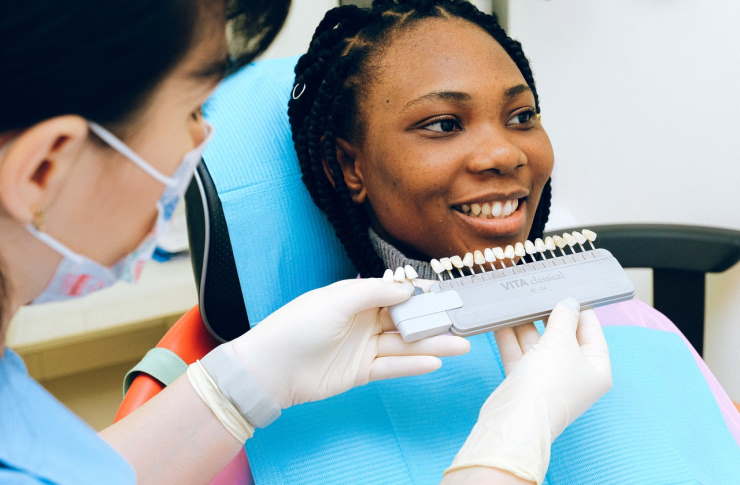Dental Implant Cost Comparison: United Kingdom vs Turkey 2025 Full Mouth Savings Guide
Many UK patients pay far less for dental implants in Turkey while receiving comparable care. For full mouth restorations in 2025, this guide compares costs, treatment options, and key considerations to help UK patients evaluate domestic versus Turkish implant choices safely.

Dental implants have become a popular solution for individuals seeking to restore missing teeth and improve oral function. As treatment costs vary significantly across countries, many UK patients are exploring international options, particularly in Turkey, where dental tourism has grown substantially. Understanding the price variations, treatment standards, and logistical considerations can help patients make well-informed decisions about their dental care.
Comparing Dental Implant Costs in 2025: United Kingdom and Turkey
The cost of dental implants differs considerably between the United Kingdom and Turkey. In the UK, a single dental implant typically ranges from £2,000 to £3,000, with full mouth restoration procedures potentially costing between £20,000 and £40,000 or more, depending on the complexity of the case and the materials used. These figures reflect the higher operational costs, regulatory standards, and labour expenses within the UK healthcare system.
In Turkey, the same procedures are generally offered at significantly lower prices. A single dental implant may cost between £400 and £800, while full mouth restoration can range from £4,000 to £10,000. The price difference stems from lower operational costs, favourable exchange rates, and competitive pricing strategies employed by Turkish dental clinics catering to international patients. However, patients should verify that lower costs do not compromise quality or safety standards.
Full Mouth Dental Implant Treatments: Procedures and Costs
Full mouth dental implant treatment involves replacing all teeth in one or both jaws using implant-supported prosthetics. The procedure typically includes initial consultations, diagnostic imaging, implant placement surgery, and the fitting of permanent prosthetic teeth. Treatment may involve techniques such as All-on-4 or All-on-6, which use fewer implants to support a full arch of teeth, reducing both cost and recovery time.
The overall cost depends on the number of implants required, the type of prosthetic material selected, and whether additional procedures such as bone grafting or sinus lifts are necessary. Patients should request detailed treatment plans that outline all associated costs, including consultations, imaging, surgical fees, prosthetics, and follow-up care. Transparent pricing helps avoid unexpected expenses and ensures patients understand the full financial commitment.
Factors Influencing Dental Implant Prices
Several factors contribute to the variation in dental implant costs. Clinic location and overhead expenses play a significant role, with practices in major cities or affluent areas typically charging more. The experience and qualifications of the dental surgeon also affect pricing, as highly specialized practitioners may command higher fees.
Material quality is another critical consideration. Premium implant brands with proven longevity and biocompatibility may cost more than generic alternatives. Additionally, the complexity of the patient’s case influences the final price. Patients requiring bone augmentation, extractions, or treatment for gum disease will incur additional costs beyond the implant procedure itself.
| Treatment Type | UK Cost Estimation | Turkey Cost Estimation |
|---|---|---|
| Single Dental Implant | £2,000 - £3,000 | £400 - £800 |
| Full Mouth Restoration (All-on-4) | £20,000 - £30,000 | £4,000 - £8,000 |
| Full Mouth Restoration (All-on-6) | £25,000 - £40,000 | £5,000 - £10,000 |
| Bone Grafting (per site) | £500 - £1,500 | £200 - £600 |
Prices, rates, or cost estimates mentioned in this article are based on the latest available information but may change over time. Independent research is advised before making financial decisions.
Travel Logistics and Aftercare for UK Patients Going to Turkey
UK patients considering dental treatment in Turkey must plan for travel and accommodation expenses. Most full mouth implant procedures require multiple visits over several months, though some clinics offer accelerated treatment plans. Patients should budget for flights, hotels, local transportation, and meals, which can add £1,000 to £3,000 to the overall cost depending on the duration of stay.
Aftercare is a crucial consideration when receiving treatment abroad. Patients should confirm whether the Turkish clinic provides follow-up support remotely or if return visits are necessary. Additionally, arranging for a UK-based dentist to monitor healing and perform routine maintenance is advisable. Communication barriers, time zone differences, and the logistics of addressing complications from abroad can pose challenges that patients must carefully evaluate.
Choosing Dental Implant Clinics Safely
Selecting a reputable clinic is essential for ensuring safe and effective treatment. Patients should research clinics thoroughly, checking for accreditation from recognized dental associations and reviewing patient testimonials. Verifying the qualifications and experience of the dental team is equally important, as is ensuring the clinic uses high-quality implant materials from reputable manufacturers.
Requesting detailed treatment plans, understanding warranty policies, and clarifying what is included in quoted prices helps prevent misunderstandings. Patients should also inquire about the clinic’s protocols for managing complications and whether they offer support for international patients. Consulting with a UK dentist before committing to treatment abroad can provide valuable guidance and help assess whether the proposed treatment plan is appropriate.
While the cost savings associated with dental treatment in Turkey can be substantial, patients must weigh financial benefits against potential risks and logistical challenges. Thorough research, realistic expectations, and careful planning are essential for achieving successful outcomes and ensuring long-term oral health.
This article is for informational purposes only and should not be considered medical advice. Please consult a qualified healthcare professional for personalized guidance and treatment.




